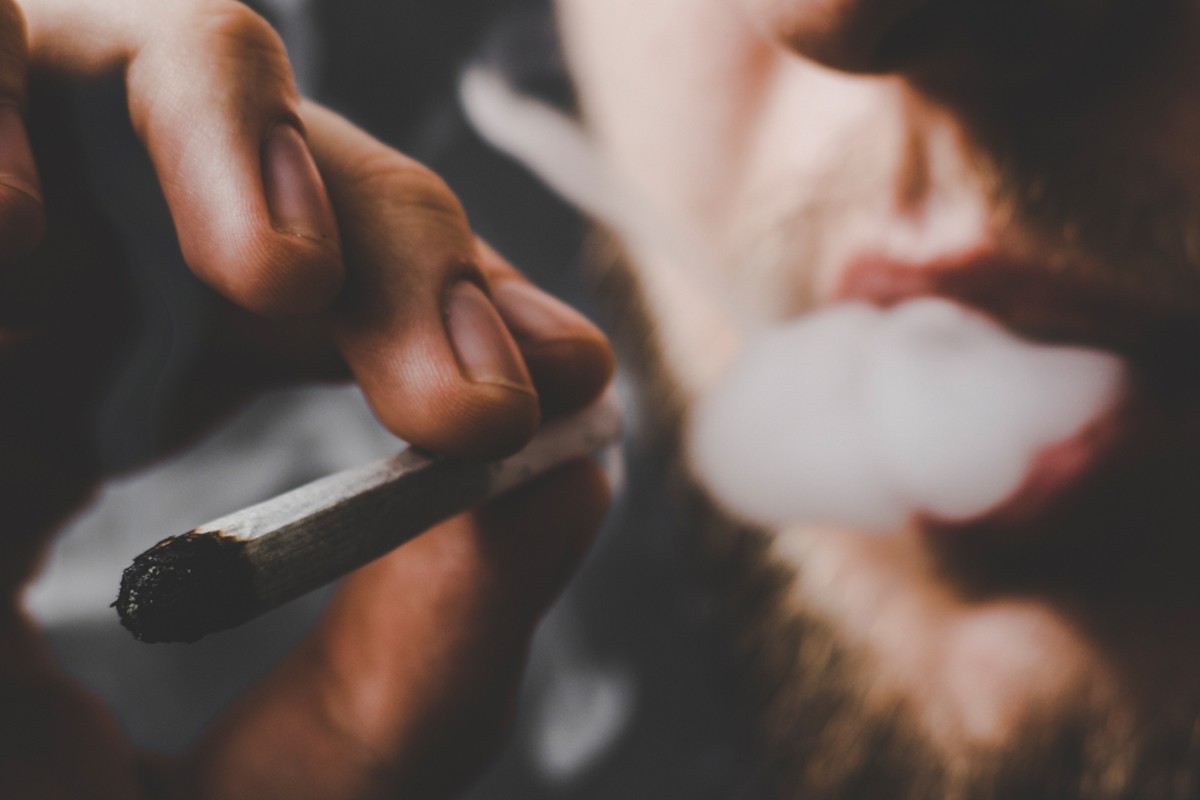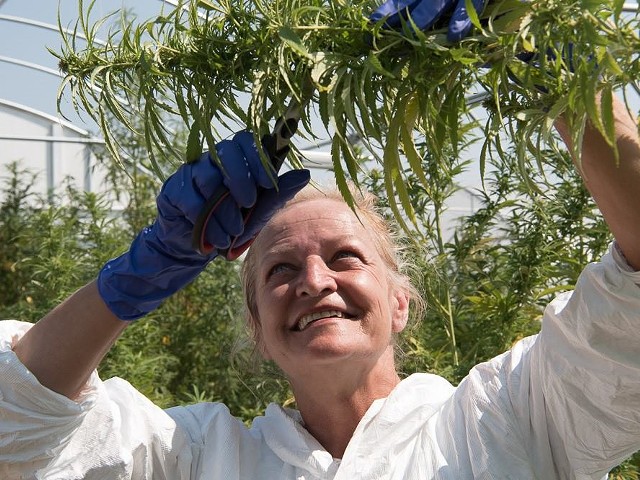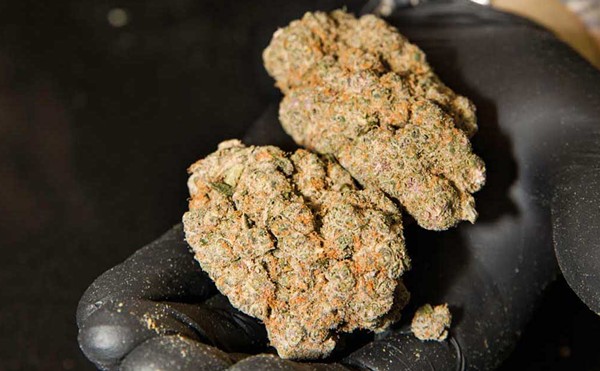The state Medical Marihuana Licensing Board could not have handled setting up and rolling out the medical marijuana facility licensing system in a more ham-fisted manner. It seems as though the whole thing was set up by people who fear marijuana and don't want it to work.
Yet again, the MMLB has had to move the deadline for the end of emergency rules because the state cannot process paperwork for the applications, which had a Feb. 15 deadline. Emergency rules were enacted so that provisioning centers could stay open for patients while the state processed licenses. Those licenses were scheduled to start going to applicants in April, and the deadline for unlicensed facilities to close was June 15. Then it was moved to Sept. 15. Now it's been delayed until Dec. 15, because not enough licenses have been granted for the system to be functional under the rules set up by the MMLB.
Anybody who was paying attention last year when the board started meeting will remember Sept. 15, 2017 as the date that board member Donald Bailey suggested that all provisioning centers be closed in order to be eligible for licenses in the new system. That motion, introduced at the Aug. 21, 2017 meeting, was the beginning of what has become a mind game with business owners. It didn't pass, but rumors began to circulate regarding whether being open after Sept. 15 would count against you in the licensing process — and the state did nothing to dispel them. This information introduced at the Sept. 12, 2017 meeting is like an indecipherable Zen koan:
"The Department will not shut down facilities; however, continued operation by a facility is a business risk as they may be shut down by law enforcement and continued operation may be a potential impediment to licensure ..."
What's that supposed to mean? It resulted in a bunch of places closing last September with the hopeful intention of reopening later with state licenses. And it's made the black market stronger because the legal market was thrown into a gray area.
Then they kept moving the deadline. Any applicant that was this lame about getting their application materials in to the board, missing deadline after deadline, would be disqualified from getting a license.
Yet the board has gamed applicants from the start. Business owners have been walking around in fear of getting someone on the state board mad and losing their chance at getting a license.
That "someone" on the board is Bailey, a retired state police sergeant who is still fighting against marijuana. He's like one of those Japanese soldiers who were found on remote islands years after World War II ended, still defending their posts because no one told them the war was over. Except Bailey has been told — and still carries on. Several people I've talked to in the past few months just don't want to say anything on the record for publication out of fear of retaliation.
Don Bailey is like one of those Japanese soldiers who were found on remote islands years after World War II ended, still defending their posts because no one told them the war was over.
tweet this
He has brought that atmosphere to the five-person board and to their discussions and investigations. The scrutiny of applicants is such that, in the words of one applicant, they consider you a dope dealer "until you prove you're not." Apparently they want to start a new industry with people who don't have any experience with the stuff.
It's probably true that a lot of the people involved in the medical marijuana business have been operating in legal gray areas. They've been forced to by a hostile state government that has only grudgingly in the past year begun to accommodate the state medical marijuana law — from Gov. Rick Snyder on down through Attorney General Bill Schuette to county prosecutors and sheriffs like Jessica Cooper in Oakland County and her henchman Sheriff Michael Bouchard.
The way it's supposed to work is that some medical marijuana caretakers have accidentally grown too much marijuana. They then provide their overages to provisioning centers for patients who don't have caretakers — except these accidental overages aren't accidental at all. This gray market was forced by the state legislature refusing to legitimize the market while the law enforcement arm wreaked havoc wherever there was an accommodating county prosecutor.
People who opened businesses with the sanction of their local community should not have ended up in court defending themselves.
This is the atmosphere that has dogged medical marijuana for a decade. It's shameful. The state misses deadline after deadline while the MMLB digs incessantly into the minutiae of people's lives in order to make sure they haven't been doing the thing that they are getting licenses to do.
The Department of Licensing and Regulatory Affairs, which oversees the medical marijuana program, has been sending out letters to caretakers asking about overages and where they have dispensed them. LARA is also looking into where provisioning centers have been getting their stuff.
It may be about figuring out what the market is, but so far the state has not shown itself to be very friendly toward folks in the medical marijuana system. Some folks just aren't going to answer those questions truthfully.
Rather than bring the black market inside a state regulatory system, state officials have sought to exclude those folks. That means that folks who are kept out are going to continue doing what they know how to do. With the possibility that recreational legalization will pass at the polls on Election Day, it doesn't bode well for a smooth transition.
More confusion?
It's impossible to say that the medical marijuana distribution system has gotten off to a rough start, because it still hasn't started yet. A new set of provisioning center emergency rules was issued by LARA last week. It's not just an extension of what has been — it sets up a number of different status categories for businesses. It's broken up into folks who filed a prequalification on or before Feb. 15 and those who applied after. Then there are subcategories of those groups, including those who filed their secondary application by June 15 and those who have local authorization or not.
Those who applied by Feb. 15 and June 15 and have their local authorization can stay open. You may have noticed some changes at a provisioning center near you. Anybody who does not have all that must close down as of Sept. 15, last Saturday. Those facilities that are still standing will know if they have a license on Dec. 1. Those who don't have a license on Dec. 1 must close by Dec. 15.
Those who receive licenses on Dec. 1 must pay their licensing fees, and they have 30 days to come into full compliance with the regulations of the system. That includes getting products that have been lab-tested and from a licensed grower.
Facilities that have already received licenses can stay in operation, but have to return licenses to the state and wait for the Dec. 1 reset.
It's not clear when a next round of licenses will be granted.
Stay on top of Detroit news and views. Sign up for our weekly issue newsletter delivered each Wednesday.







